I was playing with the map object and noticed that it didn't print if I do list() beforehand. When I viewed only the map beforehand, the printing worked. Why?
Asked
Active
Viewed 4,496 times
0
-
2Please do not paste screenshots of your code. Paste the code itself. [Why not upload images of code on SO when asking a question?](https://meta.stackoverflow.com/questions/285551/why-not-upload-images-of-code-on-so-when-asking-a-question/285557#285557) – zvone Sep 03 '18 at 23:28
-
I apologize; I didn't know how to portray the empty output. Since there are coded examples in the answer section, I will not remove the screenshots. – Tam Le Sep 04 '18 at 19:24
4 Answers
6
map returns an iterator and you can consume an iterator only once.
Example:
>>> a=map(int,[1,2,3])
>>> a
<map object at 0x1022ceeb8>
>>> list(a)
[1, 2, 3]
>>> next(a)
Traceback (most recent call last):
File "<stdin>", line 1, in <module>
StopIteration
>>> list(a)
[]
Another example where I consume the first element and create a list with the rest
>>> a=map(int,[1,2,3])
>>> next(a)
1
>>> list(a)
[2, 3]
abc
- 11,579
- 2
- 26
- 51
0
As per the answer from @newbie, this is happening because you are consuming the map iterator before you use it. (Here is another great answer on this topic from @LukaszRogalski)
Example 1:
w = [[1,5,7],[2,2,2,9],[1,2],[0]]
m = map(sum,w) # map iterator is generated
list(m) # map iterator is consumed here (output: [13,15,3,0])
for v in m:
print(v) # there is nothing left in m, so there's nothing to print
Example 2:
w = [[1,5,7],[2,2,2,9],[1,2],[0]]
m = map(sum,w) #map iterator is generated
for v in m:
print(v) #map iterator is consumed here
# if you try and print again, you won't get a result
for v in m:
print(v) # there is nothing left in m, so there's nothing to print
So you have two options here, if you only want to iterate the list once, Example 2 will work fine. However, if you want to be able to continue using m as a list in your code, you need to amend Example 1 like so:
Example 1 (amended):
w = [[1,5,7],[2,2,2,9],[1,2],[0]]
m = map(sum,w) # map iterator is generated
m = list(m) # map iterator is consumed here, but it is converted to a reusable list.
for v in m:
print(v) # now you are iterating a list, so you should have no issue iterating
# and reiterating to your heart's content!
girlvsdata
- 1,596
- 11
- 21
0
It's because it return an generator so clearer example:
>>> gen=(i for i in (1,2,3))
>>> list(gen)
[1, 2, 3]
>>> for i in gen:
print(i)
>>>
Explanation:
- it's because to convert it into the list it basically loops trough than after you want to loop again it will think that still continuing but there are no more elements
so best thing to do is:
>>> M=list(map(sum,W))
>>> M
[13, 15, 3, 0]
>>> for i in M:
print(i)
13
15
3
0
U13-Forward
- 69,221
- 14
- 89
- 114

